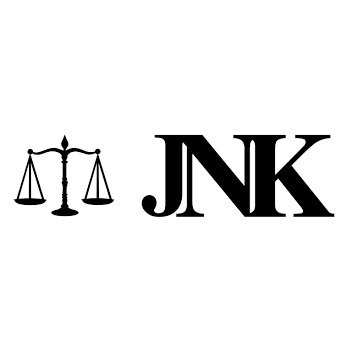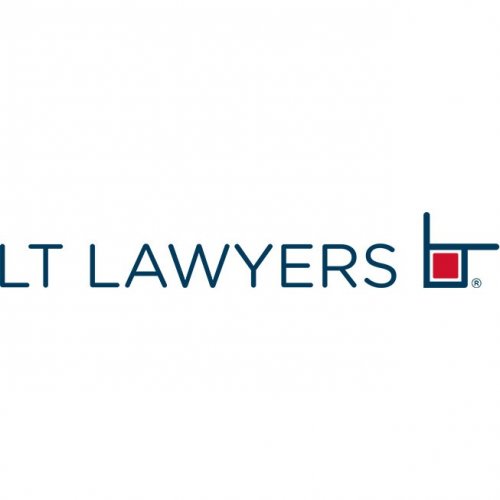Best Debt Capital Markets Lawyers in Hong Kong
Share your needs with us, get contacted by law firms.
Free. Takes 2 min.
Or refine your search by selecting a city:
List of the best lawyers in Hong Kong
About Debt Capital Markets Law in Hong Kong
Debt Capital Markets (DCM) involve the issuance and trading of debt securities such as bonds, notes, and debentures. In Hong Kong, the DCM sector has grown substantially, establishing the city as a leading hub for debt fundraising in the Asia-Pacific region. The Hong Kong Stock Exchange (HKEX) serves as a core platform for listing both public and private debt offerings. DCM transactions in Hong Kong are governed by a regulatory framework that promotes transparency, investor protection, and fair market practices. These laws impact corporate issuers, financial institutions, investors, and other stakeholders involved in debt financing and capital raising activities.
Why You May Need a Lawyer
A skilled DCM lawyer is essential to navigate the complex legal and regulatory requirements involved in Hong Kong’s debt capital markets. You may require legal help in situations such as:
- Structuring and launching bond issuances or other debt instruments
- Preparing required documents for listing debt securities on the HKEX or over-the-counter markets
- Ensuring compliance with disclosure and ongoing reporting requirements
- Negotiating terms with investors, underwriters, or trustees
- Dealing with cross-border issues for non-local issuers or investors
- Handling disputes or regulatory investigations related to debt securities
- Advising on tax, restructuring, or refinancing of existing debt facilities
Local Laws Overview
Hong Kong’s DCM environment is shaped by several key statutes and regulatory bodies:
- Securities and Futures Ordinance (Cap. 571): This is the principal legislation regulating offers of securities to the public, including debt instruments.
- Companies Ordinance (Cap. 622): Governs the legal requirements for Hong Kong companies, including issuing debt.
- Listing Rules of the Hong Kong Stock Exchange: These set out eligibility, disclosure, and ongoing obligations for issuers of debt securities.
- Code on Over-the-Counter (OTC) Derivatives: Applies to certain structured debt products and financial instruments.
- Securities and Futures Commission (SFC): The main regulatory body overseeing compliance, licensing, and enforcement in Hong Kong’s securities and debt market.
Frequently Asked Questions
What are Debt Capital Markets?
Debt Capital Markets refer to platforms and systems through which companies and governments raise money by issuing bonds or other debt instruments to investors. Investors receive regular interest payments and the return of principal at maturity.
Who regulates the Debt Capital Markets in Hong Kong?
The primary regulators are the Securities and Futures Commission (SFC) and the Hong Kong Stock Exchange (HKEX), each playing a distinct role in overseeing issuers, intermediaries, and the overall market.
What types of debt securities can be issued in Hong Kong?
Common types include bonds, notes, certificates of deposit, perpetual securities, convertible bonds, and medium-term notes (MTNs), among others.
Are there specific requirements for listing debt securities on the HKEX?
Yes. The HKEX Listing Rules set out detailed criteria such as minimum issue size, disclosure, documentation standards, and ongoing obligations for listed debt securities.
Do foreign companies need to comply with Hong Kong laws when issuing debt here?
Yes. Foreign issuers offering or listing debt securities in Hong Kong must comply with local disclosure rules, eligibility requirements, and other regulatory obligations, subject to certain exemptions.
What is the typical process for a debt issuance?
The process usually involves structuring the offering, preparing legal and regulatory documents, obtaining approvals, marketing to investors, pricing the debt, and closing the transaction. Each step must meet specific legal standards.
What are the main legal risks when engaging in DCM transactions?
Risks include regulatory breaches, misrepresentation or inadequate disclosure, market manipulation allegations, non-compliance with ongoing reporting, and enforcement actions.
Are there ongoing obligations after issuing debt securities?
Yes. Issuers must fulfill continuous disclosure responsibilities, report material developments, and comply with periodic reporting standards required by HKEX and the SFC.
How can a lawyer assist with cross-border debt offerings?
A lawyer can help navigate conflicts of law, cross-border restrictions, international documentation standards, and tax considerations to ensure compliance and protect your interests.
What should I do if I am under investigation or facing regulatory enforcement?
Seek immediate legal advice. A DCM lawyer can assist in responding to regulatory queries, defend your position, and help negotiate settlements or remedial actions if necessary.
Additional Resources
Several organizations and resources provide information and assistance on Debt Capital Markets in Hong Kong:
- Securities and Futures Commission (SFC) - Offers regulatory updates, guidance notes, and public notices relevant to DCM activities
- Hong Kong Stock Exchange (HKEX) - Provides listing rules, guidance letters, and market insights on debt securities
- The Hong Kong Monetary Authority (HKMA) - Regulates banking institutions and issues guidelines for bond markets
- Asian Development Bank (ADB) - Publishes research and statistics on regional capital markets
- Law Society of Hong Kong - Features a directory of registered legal practitioners experienced in debt markets
Next Steps
If you need legal assistance regarding Debt Capital Markets in Hong Kong, consider taking the following steps:
- Identify your objectives and gather all documentation relevant to your planned or existing DCM activities
- Research and select a law firm or practitioner with specialized experience in DCM and Hong Kong regulations
- Arrange an initial consultation to discuss your concerns and goals
- Prepare questions about the process, legal costs, expected timelines, and regulatory requirements
- Stay updated on regulatory changes that might affect your planned transaction or ongoing obligations
Lawzana helps you find the best lawyers and law firms in Hong Kong through a curated and pre-screened list of qualified legal professionals. Our platform offers rankings and detailed profiles of attorneys and law firms, allowing you to compare based on practice areas, including Debt Capital Markets, experience, and client feedback.
Each profile includes a description of the firm's areas of practice, client reviews, team members and partners, year of establishment, spoken languages, office locations, contact information, social media presence, and any published articles or resources. Most firms on our platform speak English and are experienced in both local and international legal matters.
Get a quote from top-rated law firms in Hong Kong — quickly, securely, and without unnecessary hassle.
Disclaimer:
The information provided on this page is for general informational purposes only and does not constitute legal advice. While we strive to ensure the accuracy and relevance of the content, legal information may change over time, and interpretations of the law can vary. You should always consult with a qualified legal professional for advice specific to your situation.
We disclaim all liability for actions taken or not taken based on the content of this page. If you believe any information is incorrect or outdated, please contact us, and we will review and update it where appropriate.
Browse debt capital markets law firms by city in Hong Kong
Refine your search by selecting a city.















